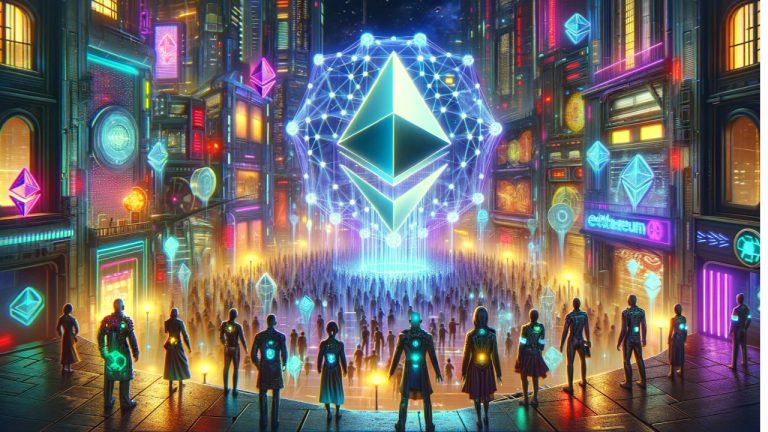
The Ethereum network has successfully implemented the Dencun upgrade on its Goerli testnet. This achievement comes as a part of Ethereum’s ongoing effort to introduce cost-effective data storage solutions on its blockchain.
Dencun Upgrade Triumphs on Goerli Testnet After Initial Delay
The highly anticipated Dencun upgrade, also known as “Cancun-Deneb,” successfully went live on the Goerli testnet on Jan. 17, following a brief four-hour delay caused by a technical glitch.
The upgrade encountered an unexpected hiccup as it failed to finalize on the testnet within the expected timeframe. Ethereum core developer Parithosh Jayanthi confirmed the successful finalization of the chain a few hours later, after a bug was identified and swiftly patched.
The goerli fork finalized!
https://t.co/LIa3d4Ml5H
After the fix was patched in, the validators came back online and the chain started finalizing again. The MEV circuitbreaker automatically disables and mev-blocks have started flowing through as well.
Yay client diversity! https://t.co/cLz3ZRxnXq
— parithosh |
(@parithosh_j) January 17, 2024
The Dencun upgrade marks a pivotal step in Ethereum’s strategy to introduce a new, cost-effective method of data storage on its main blockchain. This development is a part of a three-phase approach, with the next phases involving upgrades to the Sepolia and Holesky testnets in the coming weeks. The use of testnets like Goerli is vital in the blockchain community, as they serve as platforms to rigorously test applications and significant upgrades before their implementation on mainnets.
The implementation of Dencun on the mainnet promises substantial benefits. The core feature of Dencun, “proto-danksharding,” is set to enhance data availability capacity and reduce transaction costs for layer-2 blockchains, such as Optimism, Base, Polygon zkEVM, and others, which have gained popularity as alternatives for processing transactions on the main Ethereum network. However, the growth of these networks has been limited due to high data costs under the existing framework. Additionally, it will introduce limitations on self-destruct operations and enable new features for bridges and staking pools.
The initial delay in Dencun’s launch was attributed to a chain split caused by a bug in the Prysm implementation of Ethereum, preventing it from syncing with other nodes. Ethereum developer Tim Beiko noted that the fork occurred around 6 am UTC, and the issue was promptly addressed by the development team.
Jayanthi praised the efficiency of their debugging systems in swiftly resolving the issue, stating, “We went from fork -> issue -> triage -> fix -> finality in under 4h.”
As for the Dencun’s testing schedule, the next critical milestone is set for Jan. 30 with its implementation on the Sepolia testnet, followed by the Holesky testnet on Feb. 7. The date for the upgrade’s deployment on the mainnet is yet to be announced.
Which layer-2 will benefit the most from the eventual deployment of this upgrade to mainnet? Share your thoughts and opinions about this subject in the comments section below.
from Bitcoin News https://ift.tt/pzh3DLt
via NEWS BTC



Post a Comment